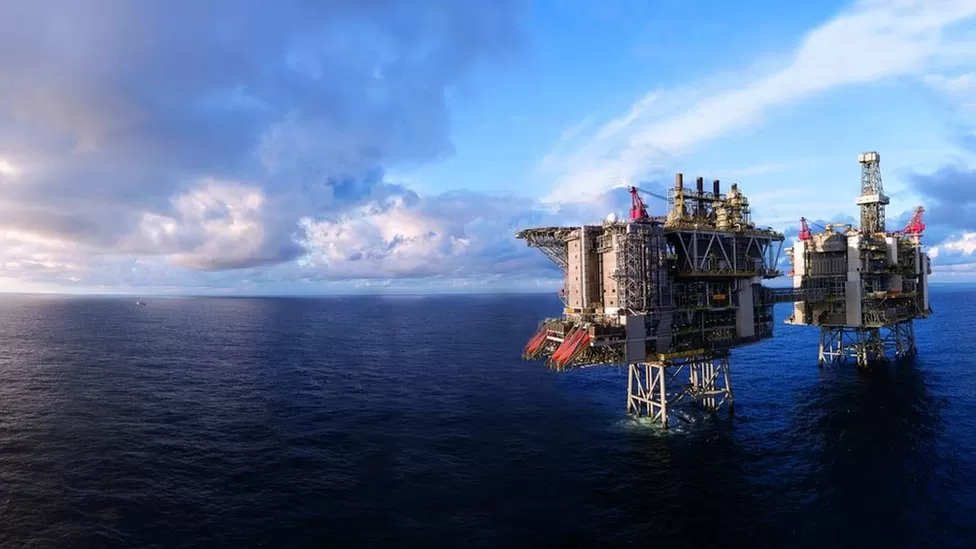The controversial Rosebank offshore development off Shetland has been granted consent by regulators.
Located 80 miles west of Shetland, Rosebank is the UK's largest untapped oil field and is estimated to contain 500 million barrels of oil. Development and production approval has been given to owners Equinor and Ithaca Energy, following reassurances over environmental concerns.
The plan has faced widespread criticism due to its impact on climate change.
Supporters of the project say it is vital for the energy security as it will reduce reliance on imports. And Gilad Myerson, the executive chairman of Ithaca Energy, told BBC Radio 4's Today programme, it will create more than 1,600 jobs and provide “a significant amount of tax revenues for the treasury”.
It comes after the UK government said in July that it would issue hundreds of new licences for oil and gas exploration in the North Sea. But last month 50 MPs and peers from all major parties raised concerns Rosebank could produce 200 million tonnes of carbon dioxide.
They wrote to then Energy Secretary Grant Shapps urging him to block the oil field, adding that most of the cost of development would be shouldered by the taxpayer.
The oil and gas regulator, North Sea Transition Authority, said approval had been awarded “in accordance with our published guidance and taking net zero considerations into account throughout the project's lifecycle”.
Drilling is expected to start in 2025, and production in 2026/27 but a senior Equinor executive, Arne Gürtner, has admitted the new field will not be electrified at that point. Electrification of the extraction process is one of the key industry pledges for reducing its production emissions.
It has been predicted that Rosebank – located 80 miles of west of Shetland – could produce 69,000 barrels of oil a day at its peak, and about 44 million cubic feet of gas per day in its first 10 years.
‘Greater energy independence'
The UK government welcomed the decision and said it has been subject to extensive scrutiny by the regulators, including undergoing a detailed environmental impact assessment and a public consultation before being approved.
Energy Security Secretary Claire Coutinho said: “We are investing in our world-leading renewable energy but, as the independent climate change committee recognise, we will need oil and gas as part of that mix on the path to net zero and so it makes sense to use our own supplies from North Sea fields such as Rosebank.
“The jobs and billions of pounds this is worth to our economy will enable us to have greater energy independence, making us more secure against tyrants like (Vladimir) Putin.
“We will continue to back the UK's oil and gas industry to underpin our energy security, grow our economy and help us deliver the transition to cheaper, cleaner energy.” However Scotland's Energy Secretary Neil Gray raised concerns that the majority of what will be extracted from Rosebank will go overseas rather than contribute to domestic energy security.
“We are therefore disappointed that approval has been given by the UK government while these concerns remain unaddressed,” he added. Mr Gray said the Scottish government were committed to a “fair and just transition” to net zero for the workforce in the oil and gas industry, maximising the potential of the renewables sector.
“Every oil and gas field that is given approval risks slowing down the just transition, away from fossil fuels and towards a sustainable future,” he added.
‘Worst possible choice'
Meanwhile it was condemned as an “utter catastrophe” by the Scottish Greens, the SNP's partners in the Scottish government. Climate spokesperson Mark Ruskell said it was the “worst possible choice at the worst possible time” and showed “total contempt for our environment and future generations”.
Labour has said that, while it opposed the Rosebank development, it would not revoke the licence if it won the next general election. Labour's business and trade spokesman Jonathan Reynolds told Sky News the priority should be on transitioning away from fossil fuels due to the volatility of their prices.
“So real energy security will only come from moving to nuclear, to renewables, to technologies that will insulate us from those pressures,” he added.
“But we have said we understand this is a difficult position for investors. We will not revoke any licences that the government chooses to grant but we don't think this is good value for money.” Greenpeace UK climate campaigner Philip Evans said: “Rishi Sunak has proven once and for all that he puts the profits of oil companies above everyday people.
“We know that relying on fossil fuels is terrible for our energy security, the cost of living, and the climate. Our sky-high bills and recent extreme weather have shown us that.”
But Russell Borthwick, chief executive of Aberdeen and Grampian Chamber of Commerce, said: “Rosebank will make an important contribution to UK and European energy security, create several hundred new jobs here in Scotland and result in over £6bn being spent within the UK supply chain which is anchored in Aberdeen and Aberdeenshire.
“Today's announcement is a welcome shot in arm for the UK energy sector which will give investors, operators and the wider supply chain confidence as they strive to provide the power we need here and now and transition towards a net zero future.”
— CutC by bbc.com


